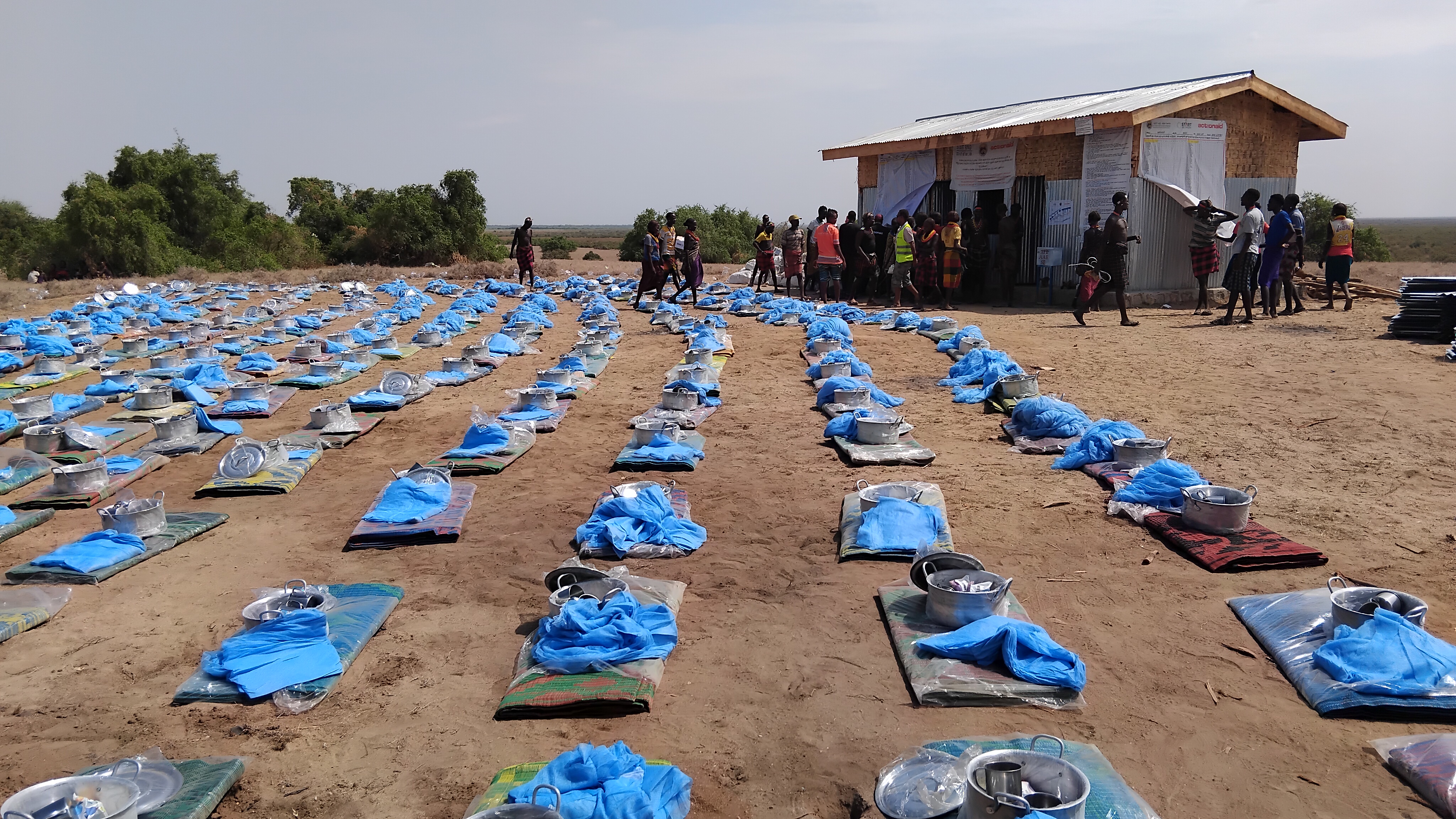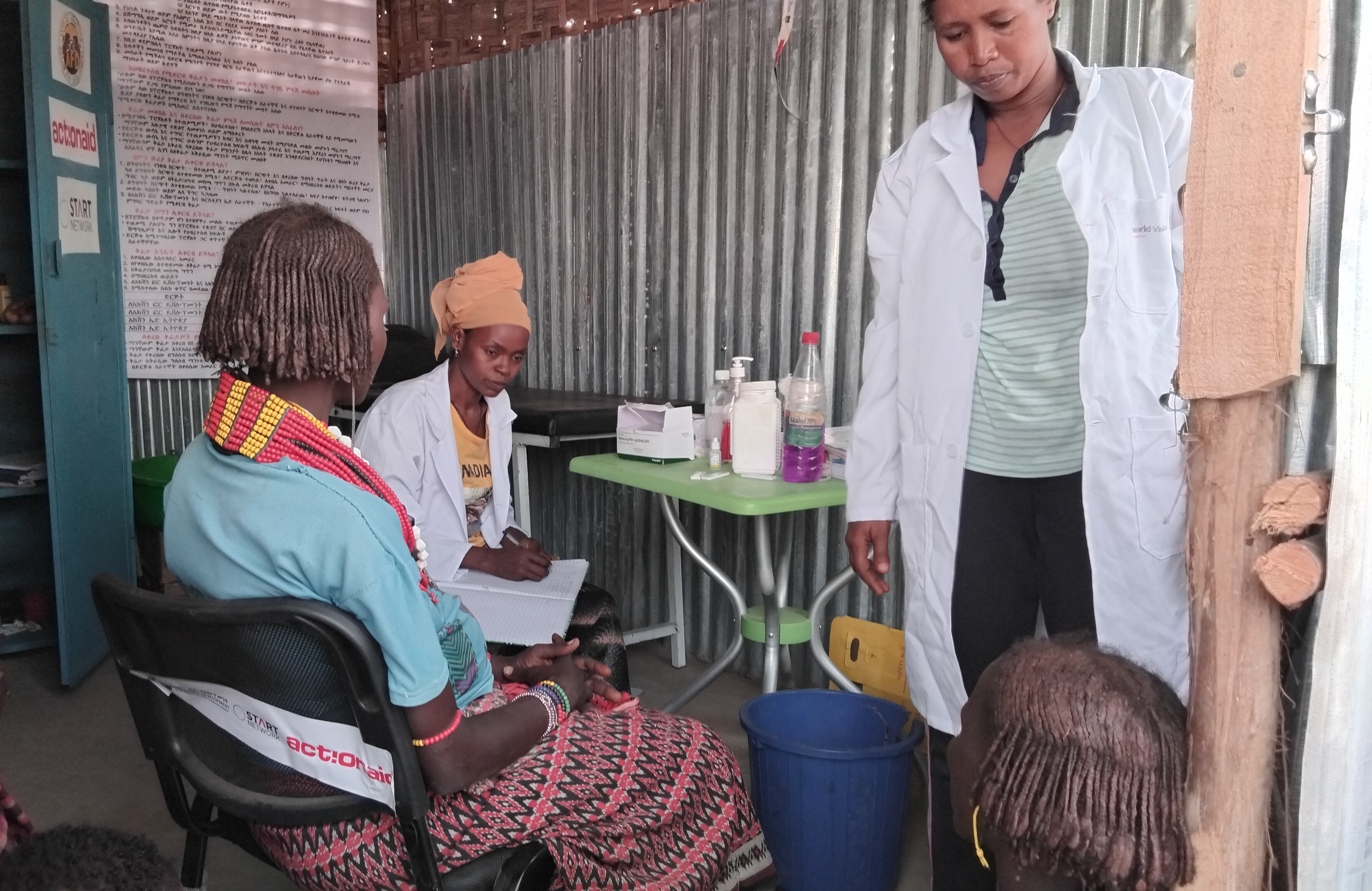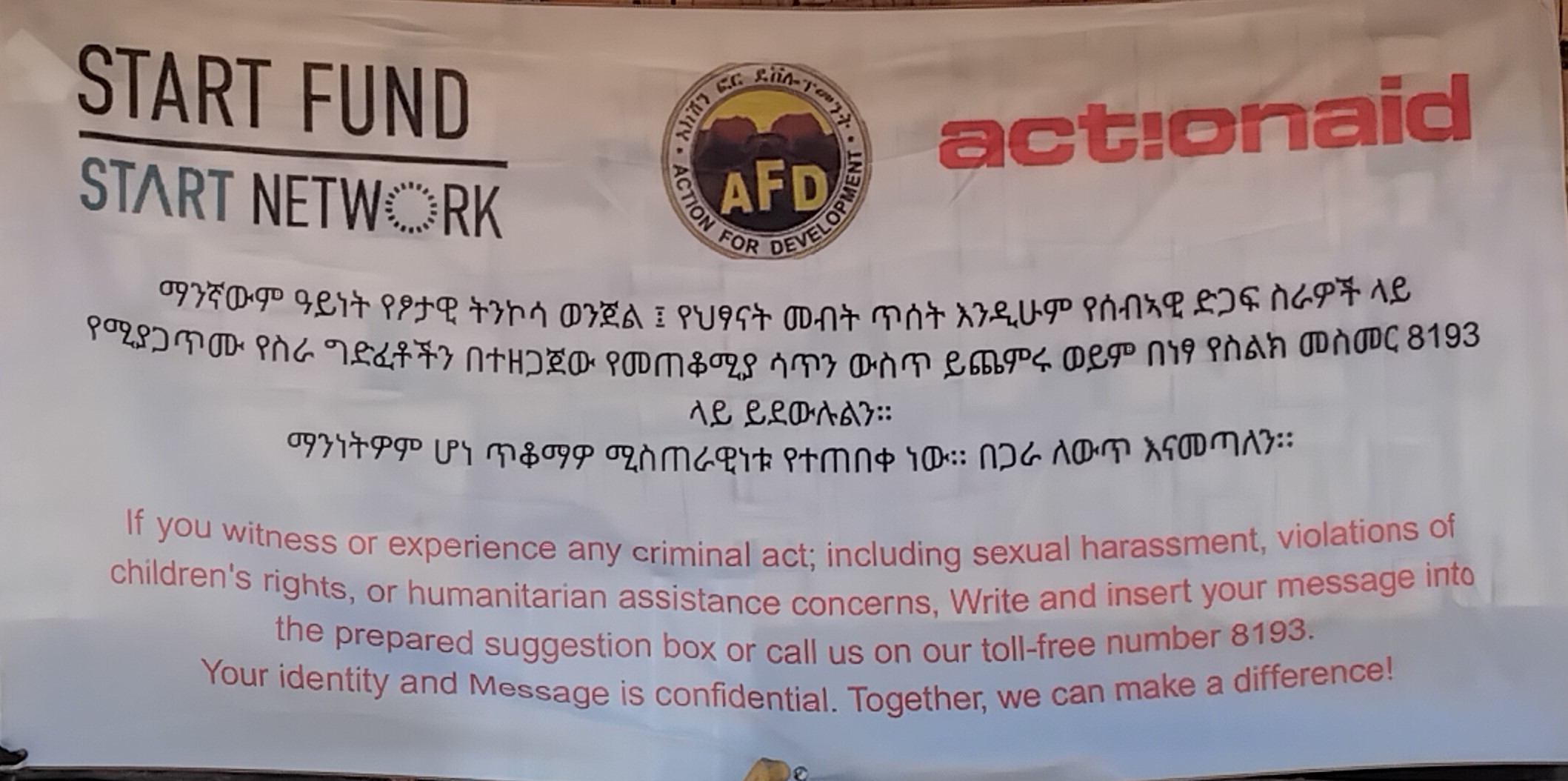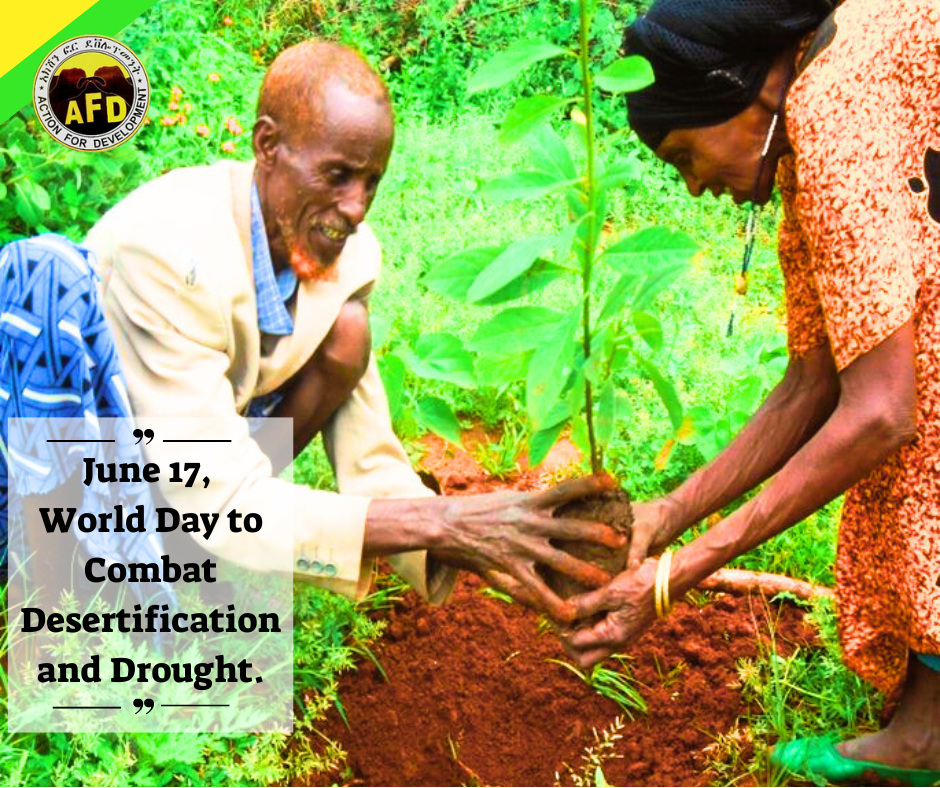Action for Development (AFD)
NEW PARTNERSHIP TO COMBAT MALNUTRITION IN EAST BORANA, OROMIA

AFD RESPONDS TO THE FLOOD EMERGENCY IN DASENECH, SOUTH OMO
Over the past 45 days, Action For Development has been providing emergency assistance to communities affected by the flooding of the Omo River
in the Dasenech district of the South Omo Zone.
The humanitarian assistance, carried out in collaboration with Action Aid, with the financing of START Fund, provided various non-food items to 1,753
households in different kebeles of the Dasenech district. It, moreover, helped with the construction and equipping of three temporary health posts.



Combatting Desertification and Drought: AFD's Commitment

Action for Development (AFD) held a forum in Moyale town, Borena zone, advocating for the pastoralists' rights.


A visit was conducted in Adama and Mojo to empower pastoralists to have better market linkage opportunities.
A visit was conducted in Adama and Mojo to empower pastoralists to have better market
linkage opportunities.
Action For Development is implementing a project aimed at strengthening the capacity of pastoralistsby building resilient livelihoods. As part of this project, this visit worked on creating and strengthening market linkages by connecting pastoralists with abattoirs and livestock exporters.
This visit helps them to breed livestock with good health and management conditions, enabling them to practically observe better livestock handling practices and increase their competitiveness. Additionally, by creating market linkages, it enables them to find additional markets and income. The visit aimed to demonstrate that pastoralism can be a viable livelihood if given due attention, and a total of 26 pastoralists from the Borana zone participated in it.
አርብቶ አደሮች የተሻለ የገበያ ትስስር እድል እንዲያገኙ ለማብቃት የሚያስችል ጉብኝት በአዳማና ሞጆ ተካሄደ፡፡አክሽን ፎር ዴቨሎፕመንት አደጋን የሚቋቋም የኑሮ መሰረት በመገንባት የአርብቶ አደሮችን አቅም ለማጎልበት የሚያስችል ፕሮጀክት በመተግበር ላይ ይገኛል፡፡ የዚሁ ፕሮጀክት አካል የሆነዉ ይህ ጉብኝት አርብቶአደሮችን ከቄራዎችና እንሰሳትን ወደ ዉጪ ከሚልኩ ኤክስፖርተሮች ጋር በማገናኘት የገበያ ትስስርን የመፍጠርና የማጠናከር ስራ ሰርቷል፡፡
ይህ ጉብኝት የተሻለ የእንሰሳት አያያዝ ሁኔታን በተግባር እንዲመለከቱ በማስቻል ጤናቸዉ እና የአያያዝ ሁኔታቸዉ የተጠበቁ የቤት እንሰሳትን እንዲያረቡና ተወዳዳሪነታቸዉን እንዲጨምር ያግዛል፡፡ በተጨማሪም የገበያ ትስስር በመፍጠር ለእንሰሳቶቻቸዉ ተጨማሪ ገበያና ገቢ እንዲያገኙ ያስችላቸዋል፡፡ ጉብኝቱ አርብቶ አደርነት ተገቢዉን ትኩረት ከተሰጠዉ አዋጭ የኑሮ መሰረት እንደሚሆን ለማሳየት ያለመ ሲሆን በአጠቃላይ ከቦረና ዞን 26 አርብቶ አደሮች
ተሳትፈዉበታል፡፡
Enabling dryland communities to realize their potential.

A secure world for women is not merely a moral imperative; it is the cornerstone of a prosperous and equitable future for all.

From Prosopis to Productivity
Witness the remarkable journey from invasive takeover to thriving productivity in Kangaten town, Nyangatom Woreda, South Omo Zone, where the resilient people of Nyangatom have reclaimed their land from Prosopis and cultivated a vibrant future.
The area has been invaded by the harmful Prosopis juliflora at a rapid pace and spread, hindering the community's ability to produce agricultural products and significantly reducing the area's productivity. The harmful and invasive Prosopis juliflora has invaded native plants, disrupted natural processes, and disturbed biodiversity interactions. This has restricted plant movement, led to water scarcity underground, and depleted grazing land.
Moreover, the area's natural forests were being heavily deforested for illegal charcoal production, placing them at severe risk of depletion. Similarly, the area, invaded by harmful and invasive plants, reduced grazing and water for livestock, causing the community to turn to the Omo Park, inevitably impacting the park as well.

The harmful and invasive plant in the area (Prosopis juliflora)
To address these interconnected problems, Action for Development, in collaboration with the Horn of Africa Regional Environment Centre and Network (HoAREC&N), implemented an environmental protection project. The project tackled the root causes of biodiversity threats, enabling the recovery of natural forests through sustained protection efforts. Furthermore, land previously covered by invasive and harmful plants, rendered unproductive, was cleared, enabling the community to grow sorghum and beans for food consumption and income generation. Pastoralists also gained access to grazing land for their livestock.

The sorghum yield obtained from the land where Prosopis was removed, after agriculture
was practiced on the land that had been invaded by it
Action for Development cleaned the area of invasive and harmful plants by organizing young people, previously involved in illegal charcoal production through deforestation, into three groups. They provided training, essential equipment, charcoal storage facilities, and start-up capital. Melkamu Matewos is the chairman of the "Melkam Charcoal Production Enterprise." The group, consisting of 10 members, cleared Prosopis juliflora from 12 hectares of land and produced 600 quintals of charcoal using the removed plant material. By selling this charcoal, the group members were able to support themselves and their families, and even save money.
The natural forests around Kangaten town, previously deforested for various purposes, are now protected and recovering well.
Finally, Melkamu concluded our conversation with the following: "This success is a game-changer, enabling us to rescue grazing and agricultural land from invasive plant invasion, support ourselves with food and income, reduce the pressure and danger on Omo National Park and the surrounding forests, and transition from deforestation to productivity. Overall, the community's awareness of biodiversity and environmental protection has increased. They are also active participants and supporters of the project's positive changes, being the first witnesses. We plan to expand our income base by engaging in agriculture. We also aim to create market linkages, strengthen our group financially and in spirit, and eradicate harmful plants even further."

Melkamu Matewos - Chairman of the Enterprise
Action for Development's environmental protection project, implemented since 2020, has successfully rescued the ecosystem from the threat of depletion and facilitated a transition to productivity for the community. AFD is achieving its goal of enabling citizens to break free from dependency and establish a strong and resilient livelihood foundation. The positive changes within the community are a living testament to this.

The 28th General Assembly of AFD took place.
The 28th General Assembly of AFD took place on 30/March 2024 in Addis Ababa.
Among other things, the General Assembly endorsed the annual and external audit reports for 2023, and the annual plan and budget for 2024.

Stay connected via
Face book https://www.facebook.com/AFDEthiopia/
Website https://www.afdethiopia.org/
Youtube https://youtu.be/IG7nbrDAVlo
Twitter @afdethiopia
Empowered women build empowered communities.
Empowering women is not merely an act of social justice; it is a cornerstone of community development.
When women have access to education, healthcare, economic opportunities, and political participation,
they become agents of positive change within their families and communities. Their empowerment leads
to improved health outcomes, increased economic stability, and greater social cohesion, ultimately fostering
more equitable and prosperous societies for all.






